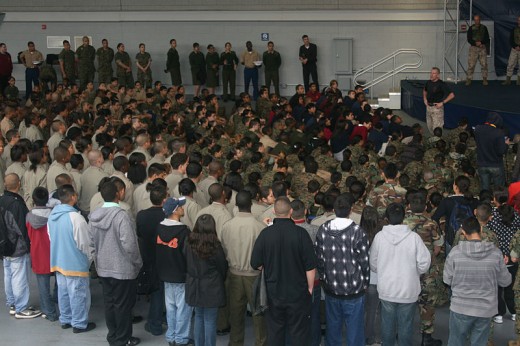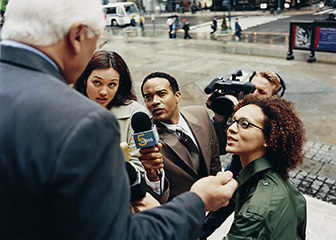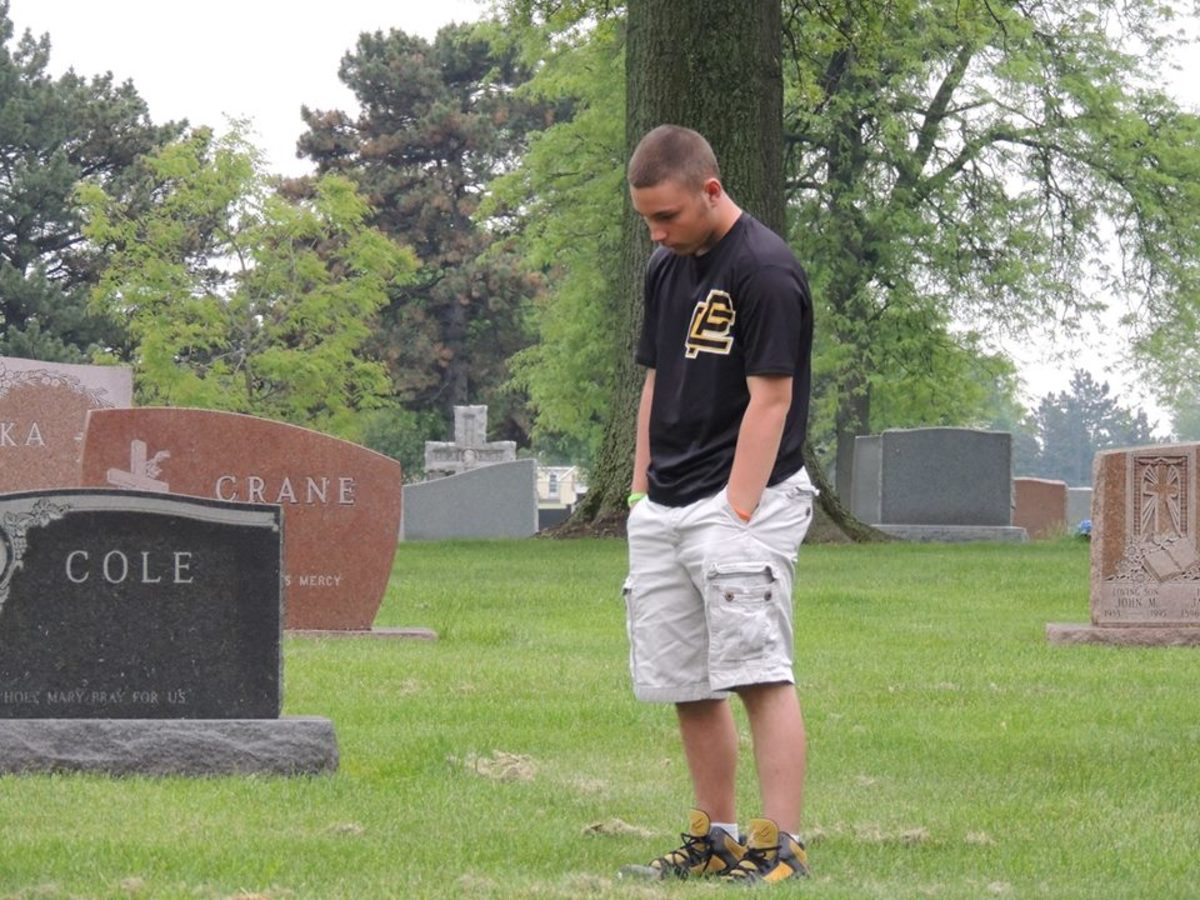Society and Violence - The Mind of Mass Shooters

Many Questions and Few Answers
Anger, hostility, unresolved conflicts and violence erupt everyday, in every corner of the planet. As it becomes more commonplace to hear about mass shootings in schools, in malls, at movie theatres, at houses of worship, people are left to wonder why is this happening?
These events make us ask many questions, and few answers, with meaningless reasons and heavy hearts, with few changes for the future and more tragic stories to come. The roots of violence in America and around the world, leave us with little understanding of why this keeps happening. Everyday disgruntled people use violence as a form of resolving their conflicts and problematic issues.
With increased frequency, we hear more stories of mass violence against innocent and random individuals. As a society we have made little progress in stopping these rampages against people made vulnerable by doing ordinary things in the course of their everyday ordinary lives. When people use violent mass shootings as a way of resolving their own problems, it brings national attention to the idea that the perpetrators of these crimes have few skills to deal with anger and their overwhelming hostility.
Our Evolutionary Past

Violence Among Chimpanzees
The profile of those that commit these acts invariably fit similar characteristics. In the last 25 years, there has been a 300% increase in adolescent homicides in the U.S.
Why do people behave in such a violent manner? Some theories state that our brains respnd this way from our evolutionary past, that some are prewired to behave this way, that genes are the cause. Certainly some people are more prone to react in a violent manner than others.
In our closest relatives, the chimpanzees have shown violent behavior. Chimps will fight each other to gain leadership to become the alpha male and compete aggresively for dominance. Rank is very important to male apes. Much time consuming energy, persistence, and manipulation is driven by preset emotions that in humans would be equated with arrogance or pride. Once a single chimpanzee achieves the alpha role, violence is reduced dramatically, in part because the alpha male suppresses the fights for dominance among the lower ranking males.
Human beings like to consider themselves superior to the apes. In the adolescent years, peer groups vie for domination and feelings of inclusion. Sports are a common way to compete. Our evolutionary past and cultural influences play a role in the violence a society is impacted with.
The Roots of Violence in Society
The roots of violence in society are interconnected with culture and biology and offer little towards solving the reasons behind these events, and causes great concern for everyone, greater loss and eternal pain. The capacity to understand heinous acts against innocent people, especially in mass shootings, is too much for us to comprehend and to answer the many questions.
The Brady Campaign to prevent gun violence said there are about 20 mass shootings every year. http://www.bradycenter.org/ and bradycampaign.org keeps statistics and has noted that little has been done to stop these types of crimes. While statistics may show that mass shootings are rare, one is too many.
Profiles of Mass Shooters
The perpetrators of these crimes fit into a profile that is over and over again, very predictable.
-
95% are male
-
98% are either black or white
-
low self esteem
-
most are in their early 20’s
-
they spend a lot of time alone and have few friends
-
they kill indiscriminately in a public place
-
they carry their acts out during the daylight hours
-
they are ready to make others payback for all the wrongs that were done to them
-
many were bullied and loners who felt great despair over their own plight
They intend to inflict great pain upon society, and enact revenge of great proportions. They are often driven by feelings of anger, resentment, paranoia, and narcissism. They are injustice collectors, meaning they pile up the ideas that they have been mistreated by society. Everyone becomes the enemy and a target of their rage. Psychiatrists termed the word pseudocommandos to describe this type of profile and have developed a list of common traits of the “psuedocommando” type.
-
Their offense is well thought out and well preplanned, except for their escape
-
have a large arsenal of weapons, usually guns and firearms
-
dress for war in black or military garb
-
usually commit suicide or get killed or captured by the police at the scene
-
some may have false beliefs of delusions, or hallucinations often characterized by psychosis
-
their feelings of powerlessness cause them to fantasize about revenge and violence in a grandiose manner.
-
They believe their actions will bring them fame and power
Rarely do they have careers, they are often isolated individuals, and have personalities that are noted by their suspiciousness, obsessions and thoughts of grandiosity. They believe they are persecuted and often have delusional beliefs that lead them to self justification. Their thoughts consume them as they obsess about the wrongs they perceive have been done to them. They intend on killing as many people as they can and often kill themselves at the scene. The events usually take place in a very short period of time, taking out as many people as they possibly can. It appears that people who carry out these acts against innocent people don’t necessarily have a snapping point. They often act without any signs or forewarnings about what they are about to do. These shooting sprees are not a random act.
The federal government conducted a study after the Columbine incident in 1999, of 37 incidents of violence in schools from 1974 to 2000 to gain a better picture of who commits these acts. The results of this commissioned study showed that over 50% of the attackers had suffered from extreme depressin. 25% had major issues with alcohol and drugs.
Bottled Up Feelings Can Be Hidden Until It Is Too Late

Eruptions of Disgruntled Feelings
Acquaintences who know the attacker often say they are quiet. The family will often state there were hospitalizations and angry outbursts. Some were physically or sexually abused. And all seem to feel powerless. Those who feel powerless have a need to strike back. Their anger and rage builds, they strike with a fierceness and a brutality that will hurt the whole world.
The age of the attackers, being in their early 20’s, is correlated to a still developing brain. Adolescents are more risktakers and greater impulsive behavior. At this age, they lack good judgment. Those who have easier access to guns are more likely to use them. Those who act out in violent manners, have learned to settle things in violent ways, because acting out like this does not seem foreign to them.
Society needs to help people to manage rejection, humiliation, criticism, and frustration. They hold these feelings in. Their emotional energy smolders, and these feelings boil over and eventually erupt in a big way.
These people disengage and isolate themselves from others and begin to obsess about the acts they are determined to carry out, often with a fascination over guns and firearms. They feel like they are the victims and no one will be exempt from their carnage. They blame others for their misery and misfortune. The shooter usually does himself in after they have committed their angry rampage, perhaps because they have preplanned everything but how to get away.
Afterwards everyone asks why and the answer is for multiple reasons. Perhaps they feel glory from their actions, they know they will be famous for their acts, and finally call attention to themselves. They feel powerful and significant. Research has shown that a mass shooting is often committed within two weeks after a previous one got media attention.
The Brain and Violent Actions
In teens and young adults, the frontal lobes of the brain have not fully matured enough for complete self control, reasoning, and wisdom. Behavior is a direct result of the way our brain works.
Family violence has an affect on the brains of children. Chronic stress can trigger stress responses in the brain. It is a biological response that helps us recognize and react to feeling threatened. These responses can become over stimulated from chronic and long term stress. The amygdala, a part of the brain that is related to emotional responses, can predispose a person to mental and behavioral problems, especially anxiety. When someone is under constant stress, the amygdala becomes over-reactive, making them ready to react if they feel threatened. This has been documented neurologically in soldiers.
Children who grow up in environments that feel threatening to them have less energy to learn how to deal with age appropriate challenges, social situations, and cognitive skills. Growing up feeling threatened, can inhibit imagination.Their emotional response may be out of proportion to the level of threat that occurs or they perceive. This may cause excessive aggression in the belief that they are defending themselves. They react maladaptively and create mayhem upon civilized society.
Psychopaths, many of whom commit violent crimes, were studied by scientists at King’s College London. The research showed they had structural abnormalities in their brains, using. MRIs, Magnetic Resonance Imaging. Psychopaths typically have little empathy or remorse towards others or their actions, and often may use intentional aggression to get what they want. Neural deficiencies may account for their lack of moral reasonings, lack of guilty feelings and lack of empathy.
News Makes Them Famous

The Desire to Feel Important and Significant
As a country, the United States has dealt with mass violence too many times. From Columbine High School Colorado, Virginia Tech University, Tuscon Arizona shooting involving Congresswoman Gabrielle Gifford, the movie theatre shooting in Aurora Colorado, the Sikh Temple in Wisconsin,the Oregon Mall shooting and the shooting of children at Sandy Hook Elementary School in Newtown, Connecticut, are just some of the events that have shaken the consciousness of our nation.
The reasons for each of these events remains elusive and may never be very well understood. The results of the acts they carry out leave society and its most innocent victims vulnerable to attacks that continue to grab world wide attention. The desire for revenge is a universal theme in all these incidents, perhaps giving them justification for their actions. Their anger and resentment has fueled the beliefs they have been persecuted and mistreated.
Since they have suffered, they want others to pay and suffer. Through their powerlessness they want to gain power and fame for their wounded self esteem and feelings of insignificance. They are motivated by a highly personal agenda which came about from a maladaptive behavior, mental distress or mental illness.
Those who carry out these acts share many common psychological characteristics. Those who are victims of these events share many common characteristics too, they were doing ordinary things in the wrong place at the wrong time.
There are debates that video games influence dangerous behavior, that the media encourages copycats, that more needs to be done to provide better mental health. Society is falling short on protecting its citizens. The President of the United States and every politician we have elected to public office needs to take an active stand about what laws they will enact that will protect us so that these events happen less frequently, not more.




